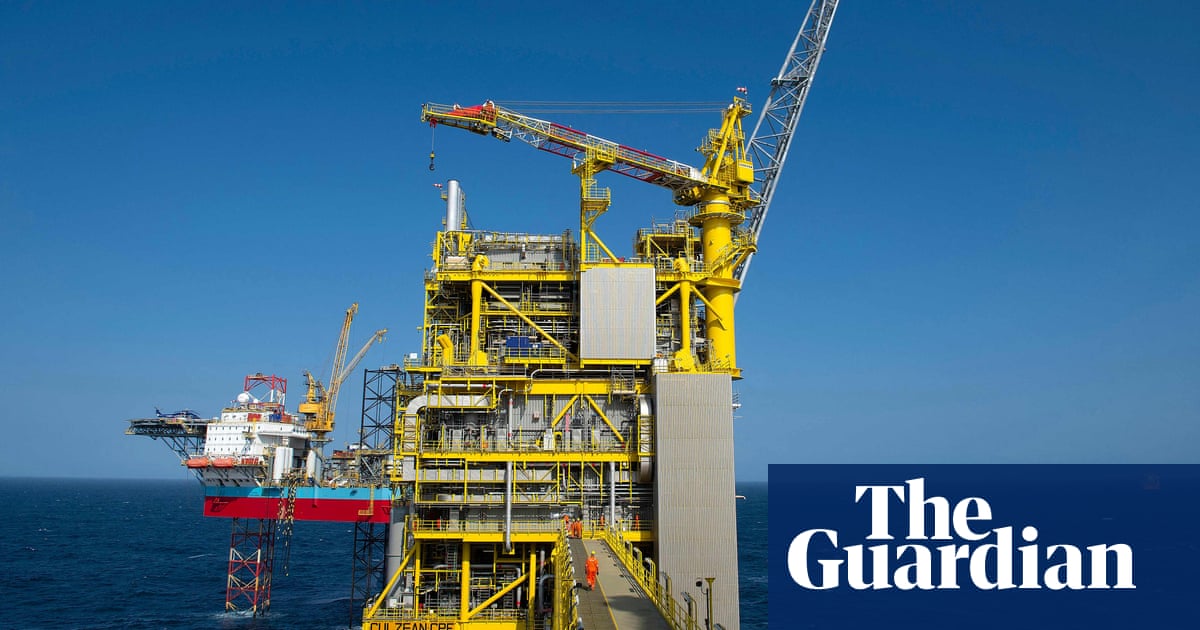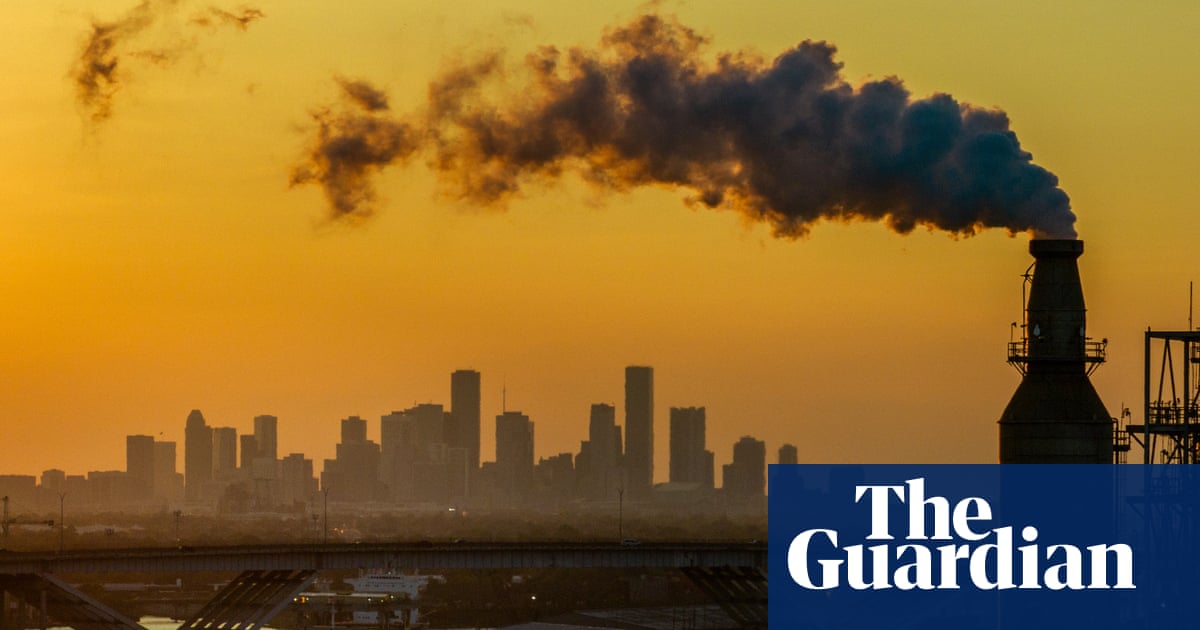
New oil and gas licences for the North Sea are incompatible with the UK’s international climate commitments and the Paris climate agreement, analysts have said.
The government is considering licences for new oil and gas fields in the North Sea, under pressure from backbench MPs and media commentators, who claim new fossil fuel development is needed to reduce energy bills.
But the additional greenhouse gas emissions from developing new oil and gas fields, as existing wells are depleted, would bust the UK’s carbon budgets and set the world on course to exceed the limit of 1.5C targeted at last year’s Cop26 UN climate summit, according to researchers at UCL.
Daniel Welsby, a research fellow at UCL and co-author of a research note seen by the Guardian on the UK’s potential new licences, said for the government to justify licensing new fossil fuels, ministers would have to be able to persuade other countries to reduce their production.
“There is no need for new oil and gas fields in the UK,” he told the Guardian. “For the UK to produce more oil and gas, another oil producer would need to keep their oil and gas in the ground.”
The paper, from UCL scientists and commissioned by the campaign group Uplift, says: “The development of new UK oil and gas fields are not compatible with limiting warming in line with the Paris agreement … We recommend a moratorium be placed on all new oil and gas fields and the government focus its efforts on supporting the transition to a low carbon economy, both domestically and internationally.”
Within the next few weeks, the Committee on Climate Change, the statutory advisory body to the government on the climate crisis, will deliver its verdict on whether new exploration and exploitation in the North Sea can be compatible with the UK’s carbon budgets.
Last year, in a report commissioned by the UK for Cop26, the International Energy Agency advised that no new fossil fuel exploration and development should take place from this year if the world was to stay within 1.5C. A research paper from UCL, published in the peer-review journal Nature, reached similar conclusions.
Tessa Khan, the director of Uplift, said: “If we carry on down this path, we’ll be dependent on a very expensive, highly polluting energy source for decades longer than necessary. A serious response from the government to both unaffordable energy bills and the climate crisis would see all this investment steered into cheaper UK renewables.”
The new round of North Sea oil and gas licensing, first announced last year, is an embarrassment for the government as it tries to cement the achievements of the Cop26 summit, held in Glasgow last November. The UK, as host, retains the presidency of the UN talks until this November, when Cop27 will take place in Egypt.
That gives the government primary responsibility for ensuring the key promise made in Glasgow – that all of the world’s nations, and especially the G20 group of leading economies, would review their national emissions-cutting plans in line with a 1.5C temperature limit – is met.
But rows within the Conservative party and in the media over the UK’s net zero target, which some backbench Tory MPs have attackedand which some commentators have claimed should be scrapped amid the energy price crisis, have overshadowed the UK’s continuing presidency and threaten to undermine the legacy of the talks.
Alok Sharma, the president of Cop26 and a cabinet minister, last month told Sky News it was “not realistic” to think new North Sea sources would reduce gas prices and said: “What we need to be doing is more of what we have been doing, which is building forward on renewables and obviously investing in nuclear.”
The Department for Business, Energy and Industrial Strategy (BEIS) is consulting on setting out a “climate compatibility checkpoint” that any new licence would have to pass.
A spokesperson for BEIS said: “There will continue to be ongoing demand for oil and gas over the coming years as we transition to cleaner, more secure forms of energy generated in this country. As the business secretary has said, turning off our domestic source of gas overnight would put energy security, British jobs and industries at risk, and we would be even more dependent on foreign imports.”
About half a dozen field development plans were given consent last year, with a similar number likely this year.












